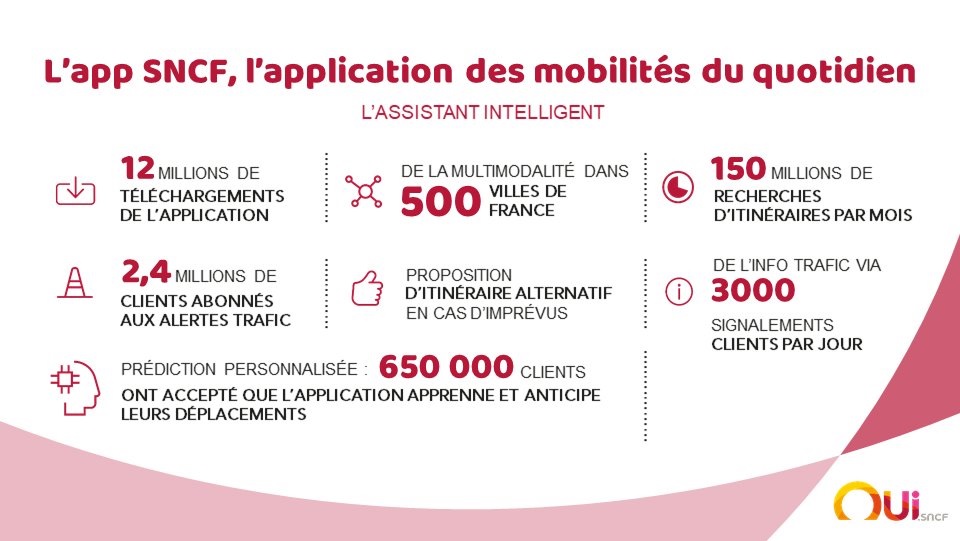SNCF Working on a Multi-Modal Mobility-Dedicated Assistant

The SNCF announced they are revisiting their digital resources, relocated to a new unit called “e-voyageurs SNCF”. This structure is meant to help them keep focusing on a smart mobility assistant they started designing last fall.
Their mobile app is currently used to inform the users on day-to-day routes, commutes and train traffic. This app will be updated in the end of October to include a new set of features. It will be refreshed every 30 seconds to reflect traffic status around Paris more accurately (including in public transport). The app will also be enhanced with learning mechanisms and customised based on the way customers use it.
The SNCF plans to launch their long-awaited smart mobility assistant in spring 2019. The new feature will be added to the current SNCF app, allowing them to consolidate services from several partners into a single interface: train, taxi, ride-hailing, bikes, buses, car parking, carpooling, etc. Customers may then register to use this interface to access information, book journeys, pay and validate their transport tickets, via NFC connectivity –as already tested by Kéolis.
Organisation-wise, this small revolution led them to create a new unit intended to bring together all digital-oriented moves by the company, and step-by-step shift to a platform model.
Comments – Faster digital shift for the SNCF
The SNCF made structural choices to carry out their ambitious project. Challenges include increasing competition on the market for mobility with more players currently building mobility-oriented platforms. Yet, with two flagship apps, SNCF (downloaded 12 million times, 40 million visitors each month) and OUI-sncf (downloaded 17 million times), the French railway company is well positioned to win the race and come up with the first multimodal mobility-dedicated app in France. Many industry players would be interested in centralising mobility data, but few also aim for federating services (except for particularly outstanding examples, i.e.: Web giants). And, eventually, there probably will not be enough room for several operators: users only rely on a very small number of apps on a daily basis.
Video:
